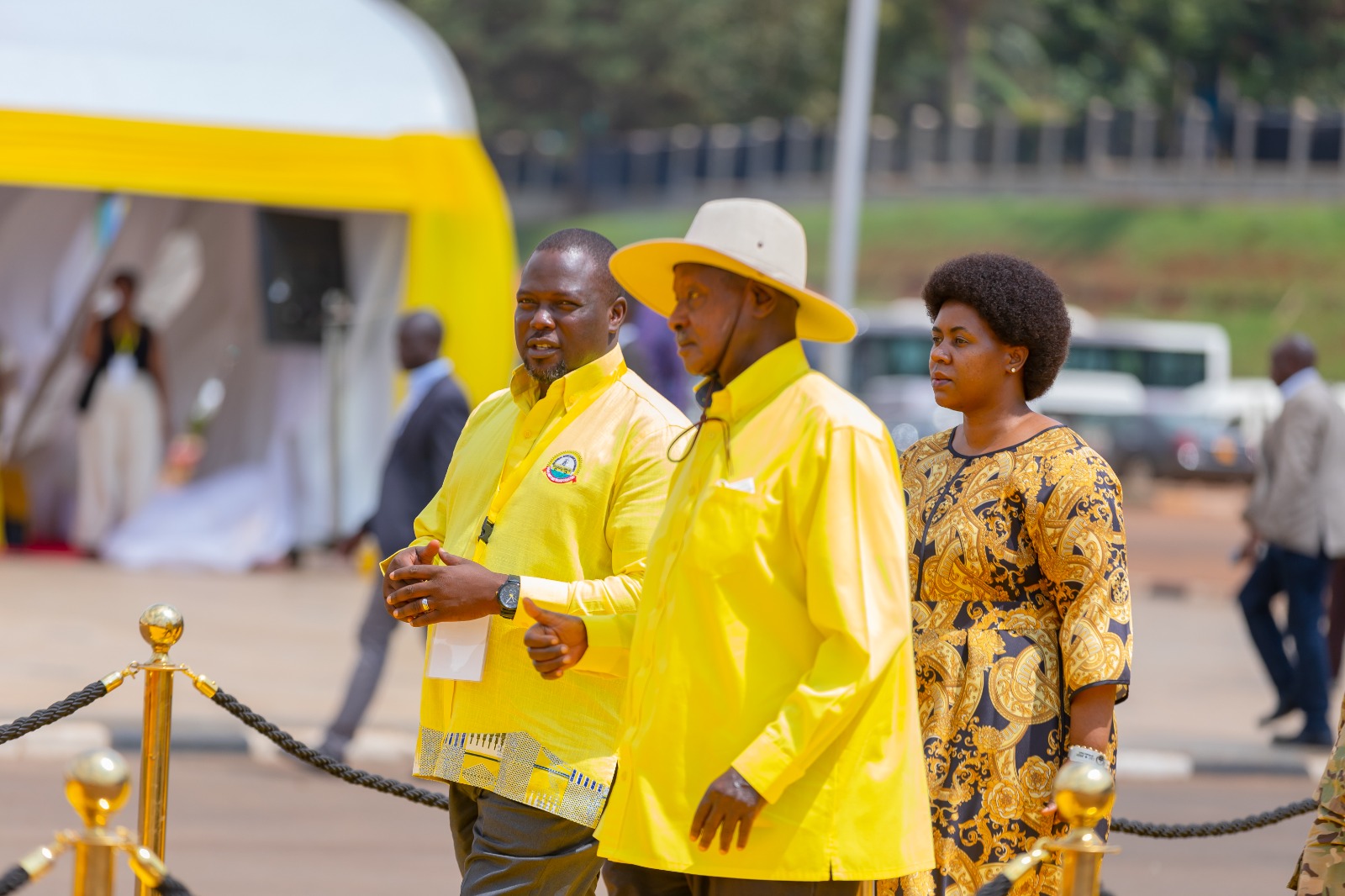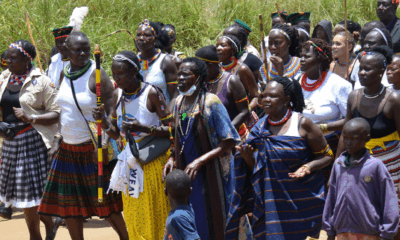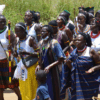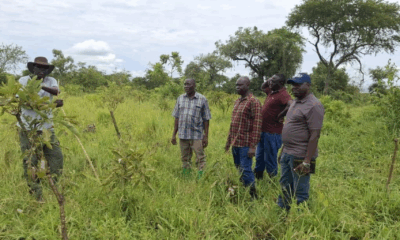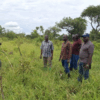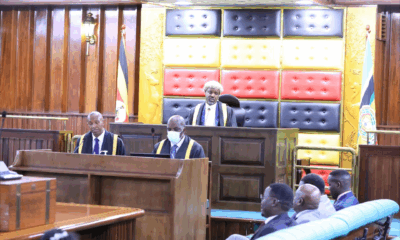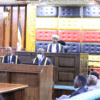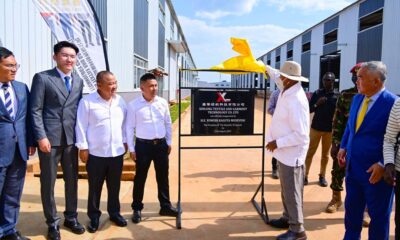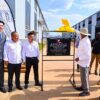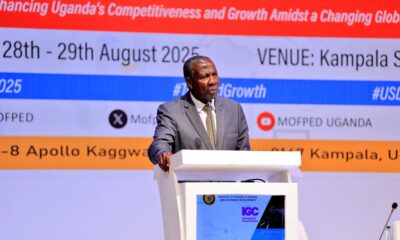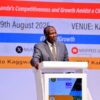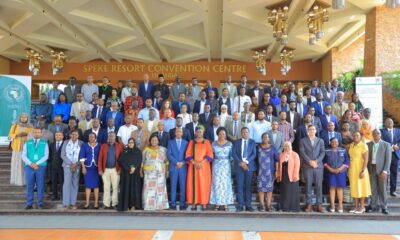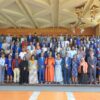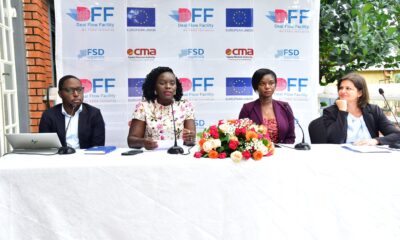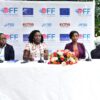Economy
Museveni Outlines Path to $500 Billion Economy, Calls for ‘Qualitative Leap’ in Uganda’s Transformation
President Yoweri Kaguta Museveni has unveiled a bold vision for Uganda’s economic and social future, urging leaders and citizens alike to embrace what he termed a “qualitative leap” that will propel the country into a high middle-income economy within the next decade. Addressing the National Resistance Movement (NRM) delegates at Kololo Independence Grounds, the President detailed the journey of Uganda’s economy from its collapse under Idi Amin to its steady recovery and expansion under NRM leadership, while emphasising that the time has now come for accelerated transformation.
Tracing Uganda’s economic history, Museveni noted that at independence in 1962, the economy was structured around a narrow enclave of exports — coffee, cotton, copper, tea, tobacco, and tourism — that engaged only 9% of households, leaving the vast majority in subsistence production. He recalled how Amin’s regime dismantled even this small base, plunging the nation into an informal economy dominated by smuggling, speculation, and scarcity. Since 1986, he said, the NRM government has pursued a five-phase recovery strategy: stabilising the economy, expanding the traditional sectors, diversifying production, promoting value addition, and opening entry into the knowledge economy.
“From a GDP of USD 3.9 billion in 1986, Uganda has grown to USD 66.1 billion today by the exchange rate method, and USD 188 billion by the purchasing power parity method,” Museveni declared. “This is a 17-fold expansion despite corruption and sabotage by some actors. But the next stage must take us to USD 500 billion, built on value addition, knowledge industries, and deeper integration into regional and global markets.”
Central to this leap, he said, are seven pillars: peace, development, wealth creation, jobs, services, markets, and political federation. He reminded the audience that Uganda’s stability over the past four decades — a feat he compared only to the Bachweezi dynasty in ancient times — has been the bedrock of prosperity, enabling infrastructure growth, industrialization, and social services.
The President stressed the difference between development and wealth: while roads, schools, and hospitals form the foundation of progress, it is individual and family-level wealth creation that directly lifts citizens out of poverty. He urged Ugandans to exploit four major avenues of wealth — commercial agriculture, manufacturing and artisanship, services, and ICT — highlighting success stories of small and medium-scale farmers who have turned a few acres into multimillion-shilling enterprises.
“If the Nyakaana model in Fort Portal, where one farmer created 15 jobs on just 1.3 acres, was replicated across seven million acres of arable land, Uganda could create 105 million jobs. That is more than enough for our citizens and even refugees,” Museveni said.
On services, he reiterated the government’s commitment to universal free education in primary, secondary, and tertiary public institutions, alongside measures to curb drug theft in hospitals and strengthen law enforcement. He pledged to expand infrastructure through multi-modal transport, shifting heavy cargo to railways and pipelines to preserve roads for passengers and light goods.
Looking outward, Museveni warned against sectarian politics, arguing that prosperity hinges on regional and continental integration. “If you really love your people, you must secure markets for their goods. Tribalism and religious divisions shrink markets. Only a united Uganda, East Africa, and Africa can guarantee prosperity,” he said, underscoring his call for the East African Federation to secure both economic and strategic security.
The President concluded with a rallying call to the newly elected NRM leaders, urging them to focus on lifting communities out of poverty through government programs such as the Parish Development Model (PDM) and Emyooga, while ensuring quality service delivery, crime reduction, and land protection.
“I thank the NRM masses for endorsing me once again as your Chairman and presidential flag bearer for 2026–2031. We have more capacity now than ever before. Let us execute the qualitative leap together,” he said.
Museveni also paid tribute to fallen party leaders, including former Speaker Jacob Oulanyah, before reaffirming his commitment to guide Uganda into a transformed, self-sustaining economy.
Comments



